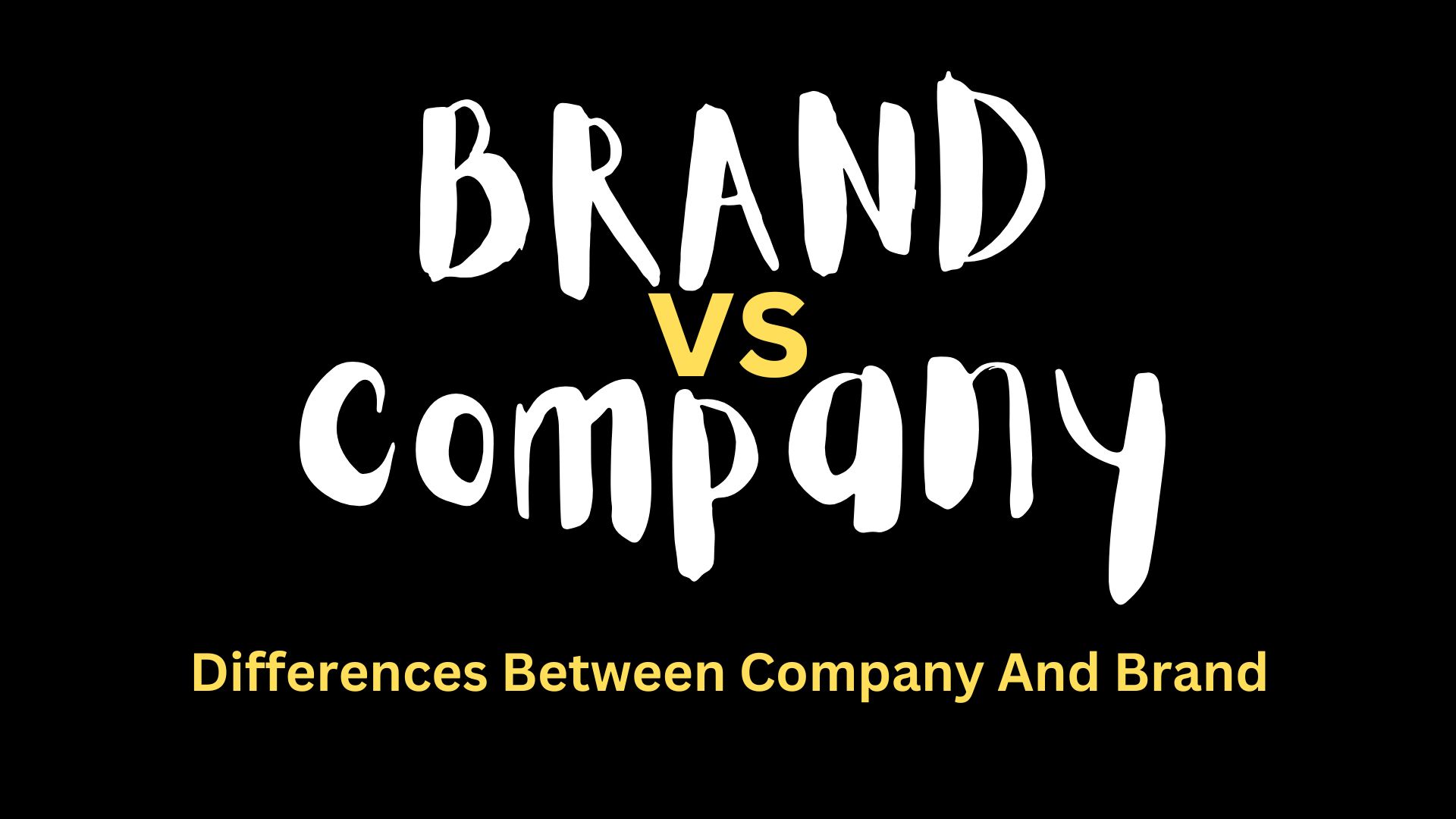Building a brand is important for business owners. At the
same time, it's important to make your company's name known to the public so
that more people are aware of your company's problems. Indeed, the company is
more than its brand. However, there is no denying that branding serves as the
public face of a company. Therefore, in this article, we will discover the
legal distinction between trademarks and companies.
What Distinguishes a Brand from a Company Name?
Brand : A brand is the name of a company's goods or
services that can be used for marketing and sales. No legal prefix is required.
Take Armani as an example because it is the most expensive clothing brand.
However, they have introduced items such as shoes, glasses, belts, leather
bags, and fragrances under this brand name.
We have already
established that a brand is the identity of a company or product. A company's
distinctive voice and image are the result of branding. This is achieved
through the use of marketing and branding components such as:
- Marketing content,
texts, and messages;
- Logo design
- Color scheme
- Graphic
- Website design
- Printed marketing
materials such as brochures
- Slogan
Each of these factors influences how customers perceive your
brand. For example, Olive Garden uses green in its cozy font and logo to
distinguish its restaurant as a relaxed, fun place to enjoy fresh food. Text on
Olive Garden's website and other marketing materials confirms this identity.
The physical layout and décor of Olive Garden's restaurants were deliberately
chosen to support the company's identity.
Company: A company name or trade name is the name of
an organization incorporated under the Companies Act. Simply put, it is a title
officially given to individuals or groups who decide to engage in commercial
activities with the aim of making money. Depending on the type of corporate
structure currently operating, corporations must have the suffix LLC, Limited
Liability Company, Corporation, or any other legal ending. The Coca-Cola
Company and ABC Private Limited Company are two examples of such companies.
But companies can also have internal branding such as:
- Company mission and vision statement
- Corporate value
- Employee Handbook and Code of Conduct
- Employee Perks and Incentives
Each of these factors
influences an employee's internal perception of the company. While employees
may not consciously think of their company as a “brand,” all of these internal
activities influence how employees view their employers and how they go to work
every day. It affects whether you are looking forward to it or not.
What's the difference between a brand and a company name?
A brand, as opposed
to a company name, describes a company's goods. The name of the company
distinguishes it from other companies in the market. A brand name identifies a
company's products and distinguishes them from those of companies competing in
the market. Popular companies like Sony and Nike may find that a single name is
adequate to identify all their products.
- In this case, those brand names and trade names may be the
same and may overlap. You can register many brand names under one company name.
Taking Hindustan Unilever Limited as an example, the famous brand names are
Wheel, Lux, Ponds, Surf Excel and Vaseline. A company is a
distinct legal person having its own name, place of operation, and the ability
to own several brands.
- A brand term, logo, mark, symbol, or name to help
consumers distinguish one product from another is known as a "Brand."
- A company is a legal body whose only purpose is to do
business in order to sell goods or services.
- A brand name, or trademark, is a designation given to
various goods and services that a business uses as an intangible asset.
While the firm is a made-up organization under whose name
various legal responsibilities are carried out. such as the submission of
yearly reports, income tax filings, and many other legal actions.
- To register a brand name or trademark, you must submit an
application to the Trademarks Department.
- On the other hand, the company name can be registered with
the Ministry of Enterprises.
- For Trademark Registration, no pre-filing name search is
required. The only search that needs to be performed is a free public trademark
search by the applicant.
The search must be done in a company name database, as
opposed to brand names, where an applicant must search for a company name
before submitting a company registration.
- Brands are
developed to meet consumer needs and expectations.
A business is formed for the purpose of producing and
selling goods and services.
Conclusion
Ultimately, a company is made up of all its employees, and a
trademark is a way of publicly identifying a company's goods or services. But
before starting a business, it is important to understand the difference
between a brand and a company to manage and develop a company's identity and
branding over the long term.

